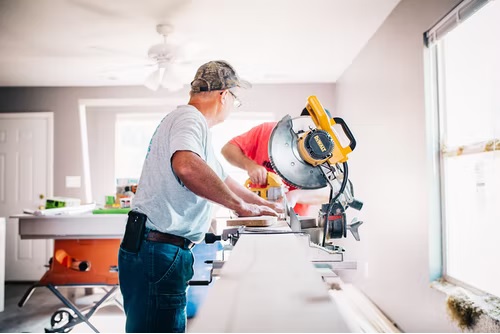Things to Consider Before Renovating Your Home
Imagine you’ve been in the same looking home for a while, with things that aren’t to your taste that you’ve simply put up with thus far. Well, you don’t have to put up with those dislikes you have much longer if you decide to renovate your home to match your preferred taste.
Renovating your home does most often prove challenging though, coming with its own challenges, especially when running into obstacles such as piping, high prices, and so on. To overstep these issues without too much anxiety, remember to compromise on your demands when things simply cannot be done or are out of budget.
Remember you can also do DIY stuff to your own home if you’re feeling handy enough to do so, though don’t count on many others helping you, the home depot salary doesn’t pay enough for them to come to your home. Make sure to ask the workers you are buying resources from though, because they are always happy to help and give tips.
In this article, we’ve put together a list of things to consider before renovating your home and will mention different areas found in your place of living as well. If you’re looking for specifics, such as the intricacies of installing a fireplace in your living room, we will simply be skimming through those.
Establish a budget
Your budget will depend on your income, mortgage and savings, and the property you live on. A house is larger than an apartment and will almost surely cost more to renovate due to its size. Make sure to prepare for extra costs because there will always be some things that create a bump in your plans.
To get an estimate of what your budget should be, you can look up average renovation prices per room or area you wish to renovate, and then you can talk to contractors, realtors, and surveyors.
Get a property survey
The first thing you should do is hire a property surveyor, especially if you are unsure of the property lines surrounding your building and are planning a home expansion. What a surveyor does is create property surveys that are legally bound so you are sure in what area you can officially stay in.

The reason this is often needed before renovating is due to land shifting every year. The way a surveyor reviews your property is by examining historical records compared to present markers on your property. The surveyor used their knowledge and this data to come to a conclusion on where your accurate property lines lie. Once you know, you can proceed without issue.
If you are willing to save money on getting your property surveyed and are working through a renovation mortgage, ask your lender about surveyor recommendations for those who are on their panel since it could result in a cheaper price tag for your surveying.
Scour your property deed
A deed is different from a title, where the deed is a document on the transfer of ownership, and the title states the legal owner of the property. The reason checking the deed is recommended is because often there is tons of legal information stated in the document that will surely come in useful when renovating.
Things such as the tax map number, restrictions, reservations of rights by a previous owner, and so on are all important to take into account.
Observe your house
There are countless things to take into account that you are likely to overlook before even beginning your renovation. This is the reason why it is recommended to take a break before renovating and just think everything through whilst planning.
Take into consideration where you have natural light streaming into which rooms, prepare to have an electrician and a plumber come to your home if need be (which is usually guaranteed), reflect on what rooms you truly need to be renovated (whether you use them every day or not), what areas in your home you especially love, and so on.
Seek permission
To renovate your home you will probably need permission from your council, insurance provider, or your bank. In other words, your home loan lender should know about your plans before even beginning them. Proper renovations increase your home’s value so ensuring they are successful is critical.
Hiring a proper contractor is also extremely important when being on a tight budget and needing everything to go as foretold, especially when you’ve gotten specific permissions for your renovation.
We should also clear the difference between a renovation and a remodel. Renovating something is restoring something old into something newer, whereas a remodel alters the state or rather the structure of a certain area. Doing both is also an option if you wish to do so and have the funds for it, but underlining the difference is necessary for decision-making.
Establish a schedule
This schedule isn’t something to necessarily stick to, but rather something to estimate the extent of your renovations. Within the schedule, you should also list the contractor’s name and contact information, including the price of their work, so that you can keep track of what’s happening on which day regarding different renovations around the house.
Check for any home damage
Things such as dampness, rot, or cracks can all create extra expenses when renovating and also make the renovation take much longer. Not only that, but signs of subsidence would mean getting insurance on your building becomes much more difficult and it may result in an out-of-pocket expense, a claim against your insurers, or a higher insurance premium.
Either way, it is a big bump in the road ahead and should be dealt with early on.
Conclusion
Though renovating is tiring, it will be worth it once you’re living in a home you appreciate and feel passion towards, no matter whether you do it through DIY methods or with a contractor. Remember to be patient and try to enjoy the messy yet satisfying process.







